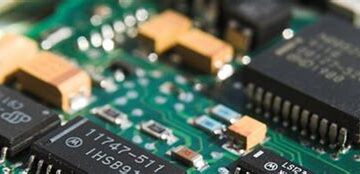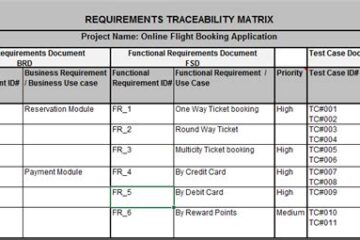Introduction to PCB Essentials
Printed Circuit Boards (PCBs) are the backbone of modern electronic devices. They provide a platform for electronic components to be mounted and interconnected, enabling complex circuits to be built in a compact and efficient manner. Advanced Circuits is a leading manufacturer of high-quality PCBs, offering a wide range of services to meet the needs of customers in various industries. In this article, we will explore 10 essential things you should know about Advanced Circuits PCB.
1. What is a PCB?
A PCB is a flat board made of insulating material, such as fiberglass or plastic, with conductive pathways etched or printed onto its surface. These pathways, known as traces, connect various electronic components mounted on the board, such as resistors, capacitors, and integrated circuits. PCBs come in various sizes and shapes, depending on the application and the number of layers required.
Types of PCBs
There are three main types of PCBs:
- Single-sided PCB: Components are mounted on one side of the board, with traces running on the opposite side.
- Double-sided PCB: Components and traces are present on both sides of the board, with connections made through holes drilled in the board.
- Multi-layer PCB: Consists of multiple layers of conductive material separated by insulating layers, allowing for more complex circuits and higher component density.
| PCB Type | Layers | Complexity | Cost |
|---|---|---|---|
| Single-sided | 1 | Low | Low |
| Double-sided | 2 | Medium | Medium |
| Multi-layer | 3+ | High | High |
2. Advanced Circuits’ PCB Manufacturing Capabilities
Advanced Circuits offers a comprehensive range of PCB manufacturing services, catering to the needs of customers across various industries. Their state-of-the-art facilities and experienced team enable them to produce high-quality PCBs with quick turnaround times.
PCB Specifications
Advanced Circuits can manufacture PCBs with the following specifications:
- Layer count: 1 to 30+ layers
- Material: FR-4, Rogers, Polyimide, and more
- Copper weight: 0.5 oz to 6 oz
- Minimum trace width: 3 mil
- Minimum hole size: 4 mil
- Surface finishes: HASL, Lead-free HASL, ENIG, and more

3. Design for Manufacturability (DFM)
To ensure that your PCB design can be manufactured efficiently and reliably, it is essential to follow Design for Manufacturability (DFM) guidelines. Advanced Circuits provides comprehensive DFM resources and support to help customers optimize their designs for production.
DFM Guidelines
Some key DFM guidelines include:
- Maintain consistent trace width and spacing
- Avoid acute angles in traces
- Provide adequate clearance between components and traces
- Use standard hole sizes and pad dimensions
- Consider the limitations of your chosen manufacturing process
4. PCB Assembly Services
In addition to PCB manufacturing, Advanced Circuits offers PCB assembly services, allowing customers to receive fully assembled and tested boards. This streamlines the production process and ensures that the final product meets the required specifications.
Assembly Options
Advanced Circuits provides two main PCB assembly options:
- Surface Mount Technology (SMT): Components are mounted directly onto the surface of the PCB using automated pick-and-place machines.
- Through-Hole Technology (THT): Components with long leads are inserted through holes drilled in the PCB and soldered onto the opposite side.
5. PCB Material Selection
Choosing the right PCB material is crucial for ensuring the performance, reliability, and longevity of your electronic device. Advanced Circuits offers a wide range of PCB materials to suit different applications and operating conditions.
Common PCB Materials
| Material | Properties | Applications |
|---|---|---|
| FR-4 | Low cost, good mechanical and electrical properties | General-purpose electronics |
| Rogers | Low dielectric constant, low loss tangent | High-frequency and RF applications |
| Polyimide | High temperature resistance, flexibility | Aerospace and military applications |
6. PCB Surface Finishes
The surface finish on a PCB serves two main purposes: protecting the copper traces from oxidation and providing a solderable surface for component assembly. Advanced Circuits offers several surface finish options to meet the requirements of different applications.
Common Surface Finishes
- Hot Air Solder Leveling (HASL): A thin layer of solder is applied to the PCB surface using a hot air knife.
- Lead-free HASL: Similar to HASL, but uses lead-free solder to comply with RoHS regulations.
- Electroless Nickel Immersion Gold (ENIG): A layer of nickel is deposited onto the copper, followed by a thin layer of gold.
- Immersion Silver: A thin layer of silver is deposited onto the copper surface.
7. PCB Testing and Inspection
To ensure the quality and reliability of manufactured PCBs, Advanced Circuits employs rigorous testing and inspection procedures. This helps to identify and rectify any issues before the boards are shipped to customers.
Testing Methods
Some common PCB testing methods include:
- Automated Optical Inspection (AOI): Uses cameras and image processing software to detect surface defects and component placement errors.
- X-ray Inspection: Allows for the inspection of hidden features, such as solder joints and internal layers.
- Electrical Testing: Verifies the electrical continuity and functionality of the PCB.
- Boundary Scan Testing: Uses built-in test circuitry to test the interconnections and functionality of digital components.
8. PCB Prototyping Services
Advanced Circuits offers fast and affordable PCB prototyping services, allowing customers to test and refine their designs before committing to full-scale production. This helps to reduce development time and costs, while ensuring that the final product meets the desired specifications.
Prototyping Options
Advanced Circuits provides several PCB prototyping options:
- Bare PCB Prototypes: Manufactured PCBs without components.
- Assembled PCB prototypes: Fully assembled and tested PCBs.
- Hybrid prototypes: A combination of bare and assembled PCBs for testing and validation purposes.
9. PCB Design Software and Tools
To design PCBs efficiently and accurately, it is essential to use the right software and tools. Advanced Circuits supports a wide range of PCB design software, ensuring compatibility with their manufacturing processes.
Popular PCB Design Software
Some popular PCB design software packages include:
- Altium Designer
- KiCad
- Eagle
- OrCAD
- Cadence Allegro
10. PCB Industry Trends and Future Developments
The PCB industry is constantly evolving, driven by advances in technology and changing market demands. Staying up-to-date with the latest trends and developments is crucial for businesses to remain competitive and meet the needs of their customers.
Current and Future Trends
Some current and future trends in the PCB industry include:
- Miniaturization: The increasing demand for smaller and more compact electronic devices is driving the need for high-density PCBs with smaller components and finer pitch sizes.
- Flexible and Rigid-Flex PCBs: The growth of wearable technology and the need for more flexible and durable electronic devices is leading to the increased adoption of flexible and rigid-flex PCBs.
- High-Speed PCBs: As data rates continue to increase, there is a growing demand for PCBs that can support high-speed signals with minimal loss and distortion.
- Embedded Components: Integrating passive components, such as resistors and capacitors, directly into the PCB substrate can save space and improve performance.
- Sustainable Manufacturing: The push for environmentally friendly and sustainable manufacturing practices is driving the development of new PCB materials and processes that minimize waste and energy consumption.
FAQ
1. How long does it take to manufacture a PCB at Advanced Circuits?
The manufacturing time depends on the complexity of the PCB and the chosen service. Standard lead times range from 1-5 days for prototypes and 2-3 weeks for full production. Advanced Circuits also offers expedited services for faster turnaround times.
2. What file formats does Advanced Circuits accept for PCB design submissions?
Advanced Circuits accepts various PCB design file formats, including Gerber files (RS-274X), ODB++, and IPC-2581. They also support native design files from popular PCB design software, such as Altium Designer and Eagle.
3. Does Advanced Circuits offer PCB design services?
Yes, Advanced Circuits offers PCB design services for customers who need assistance with designing their boards. Their experienced design team can help with schematic capture, PCB layout, and design optimization.
4. What certifications and quality standards does Advanced Circuits adhere to?
Advanced Circuits is ISO 9001:2015 certified, ensuring that their manufacturing processes meet strict quality management standards. They also comply with various industry standards, such as IPC-A-600 for PCB acceptability and IPC-6012 for PCB qualification and performance.
5. How does Advanced Circuits ensure the security and confidentiality of customer designs?
Advanced Circuits has strict measures in place to protect the intellectual property and confidentiality of customer designs. They have secure data transfer protocols, non-disclosure agreements, and access controls to ensure that customer information is kept safe and confidential.
Conclusion
Advanced Circuits is a trusted and reliable partner for businesses seeking high-quality PCB manufacturing and assembly services. By understanding the key aspects of PCB design, manufacturing, and testing, customers can work effectively with Advanced Circuits to bring their electronic products to market efficiently and successfully. As the PCB industry continues to evolve, Advanced Circuits remains committed to staying at the forefront of technology and providing innovative solutions to meet the changing needs of their customers.



0 Comments